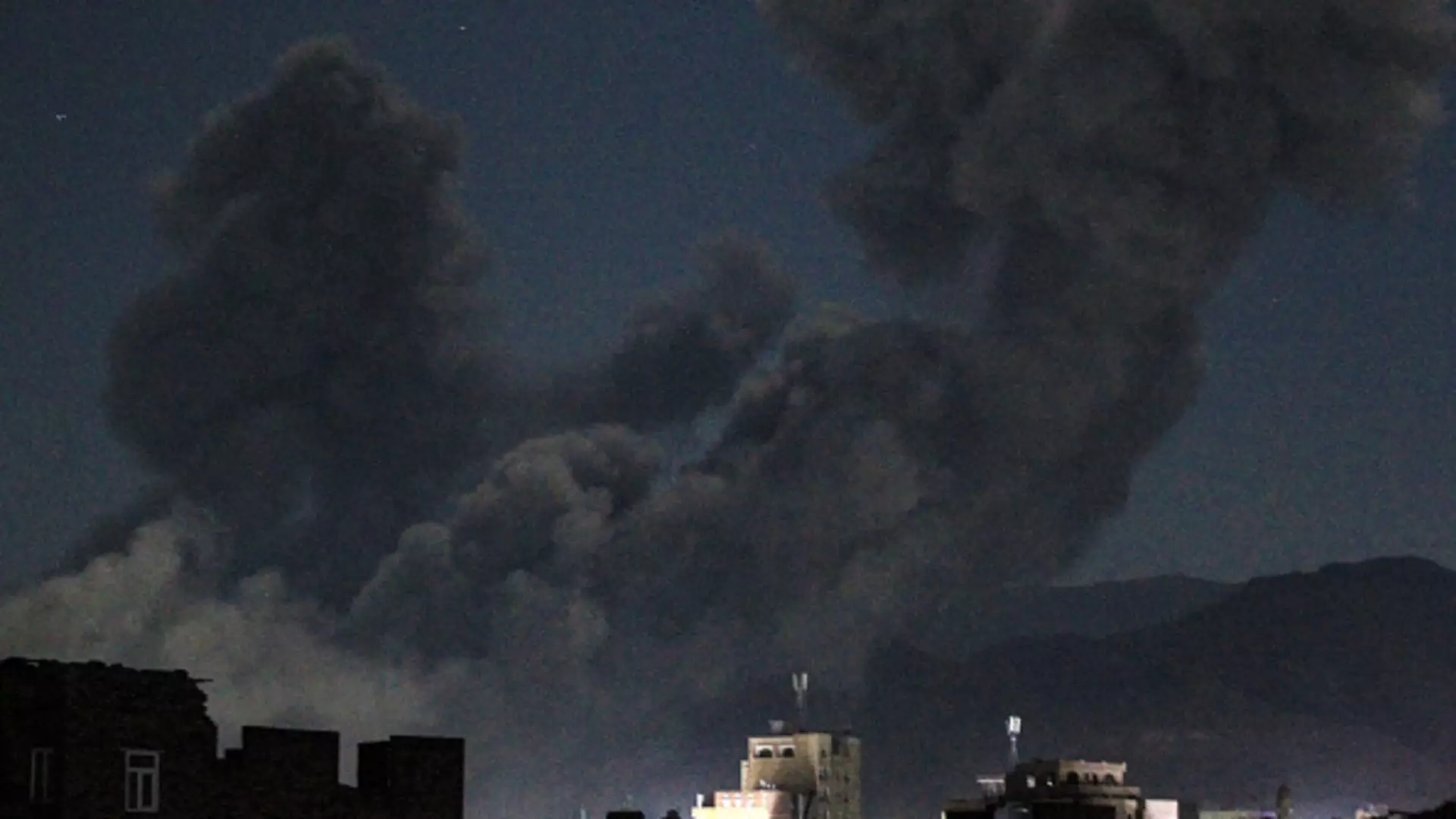In a decision that reverberates across the geopolitical landscape, U.S. President Donald Trump has unleashed a wave of military strikes targeting Yemen’s Iran-aligned Houthi forces. This aggressive act, which claimed the lives of at least 31 individuals—many being innocent women and children—signals a troubling escalation in the United States’ already contentious relationship with Iran and its proxies in the region. As Trump veers further into militarization, one has to ponder the strategic effectiveness of such an approach and at what cost it comes to the innocent lives caught in the crossfire.
In a dramatic and chilling social media post, Trump issued an ultimatum to the Houthis, proclaiming that “YOUR TIME IS UP,” and threatening them with catastrophic consequences should they fail to address their alleged aggressions. This post serves not merely as a spur for action but represents a reversion to a foreign policy akin to that of the hawkish Bush administration, where military might was often deemed a suitable answer to geopolitical chess matches. The question begs: are we witnessing a resurgence of cowboy diplomacy that prioritizes showmanship over well-considered strategies?
The Heart of Darkness: Civilian Casualties
Casualties indicate that this operation is, unfortunately, a demonstration of power exercised in the wrong quarters. Local Yemeni health officials, notably from the Houthi-run ministry, reported that the death toll includes 31 dead and 101 injured, predominantly among civilians. Such figures render a sobering reality check on the lofty ideals of military intervention. In a nation still grappling with the devastation of a prolonged civil war, how do these U.S. actions contribute to stability? It hardly seems feasible that dropping bombs on civilians would serve to win hearts and minds.
The cloud of destruction inadvertently reinforces the Houthis’ narrative that their fight against what they term foreign aggression is justifiable. As they declared the assaults a “war crime,” the cycle of violence perpetuates itself. The international community must reckon with whether military interventions truly offer sustainable solutions or if they ultimately deepen the existing schisms and lay the groundwork for further animosity.
Tehran and Its Allies: A Calculated Response
Iran’s swift and vehement response to the U.S. actions illustrates a precarious balancing act. The nation’s military commanders stated that the Houthis operate independently of Tehran’s directives, an assertion that serves to bolster domestic support even as U.S. threats loom large. Such posturing in geopolitical affairs underscores the complexities of Middle Eastern alliances, revealing that actors often play a dangerous game of misinterpretation and miscalculation, which results in an environment ripe for drastic consequences.
Iran’s leadership wisely senses the growing vulnerabilities at home, with rising dissent stemming from economic strains. Should this domestic unrest metastasize into widespread protests, it could significantly impact Iran’s geopolitical maneuvers. The U.S. operation, albeit aggressive, may ripple far beyond immediate military objectives, provoking unintended consequences for both American interests and Iranian stability.
Past Failures, Future Implications
Reflecting on U.S. engagements in the Middle East, we cannot overlook the lessons learned—or unlearned—through decades of military interventions. Trump’s call for a robust military response carries echoes of past failures, where short-term successes did not translate into long-term stability or peace. To view this latest round of strikes as an isolated act is a profound misunderstanding of the region’s complexities.
It’s essential for the United States to consider whether its goals align with international law and ethical standards. The concept of Just War, which includes proportionality and discrimination between combatants and non-combatants, seems to be either overlooked or dismissed. If military force is continually viewed as the first option rather than a last resort, the prospects of fostering a cooperative global community seem bleak.
Societal Reactions and Global Opinions
As these events unfold, the response from the global community will undoubtedly shape future U.S. foreign policy. Various governments, organizations, and activists are already beginning to voice their condemnation of the strikes, framing them as violation of international principles. The narrative of American exceptionalism is at stake; if the U.S. continues to operate unilaterally in such decisive military actions, it could isolate itself from allies and diminish its soft power in negotiations over matters like Iran’s nuclear program.
In a world where digital platforms amplify voices and mobilize public opinion almost instantaneously, the ramifications of such strikes will ripple not just through immediate tactical circles but through societal and diplomatic channels as well. The image of America as a stabilizing force is increasingly tarnished; as strikes continue and casualties mount, the moral implications of such actions demand careful re-evaluation.
In this intricate web of alliances, military strategy, and ethical responsibilities, one question hangs perilously: how many more lives will be sacrificed on the altar of perceived national interest?


Leave a Reply